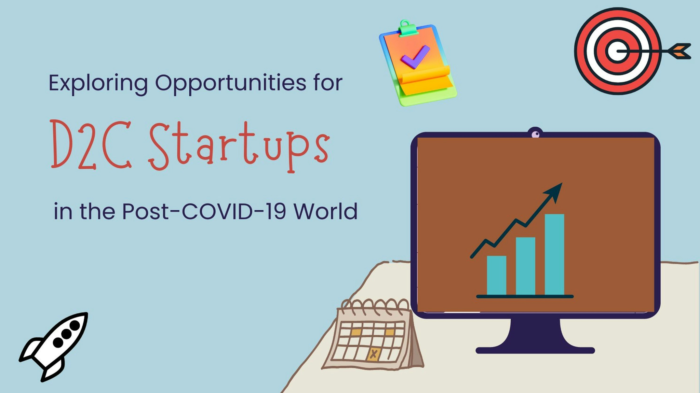Introduction to Digital Business Opportunities
The evolution of technology has significantly transformed the economic landscape, leading to the emergence of various digital business opportunities. As businesses adapt to the rapid digitalization of commerce, understanding the implications of this change is crucial. Digital transformation not only streamlines operations but also opens doors to innovative business models that can enhance customer engagement and improve overall efficiency. In today’s highly competitive market, organizations that embrace digital solutions can gain a substantial advantage over those that remain tethered to traditional practices.
The importance of exploring digital business avenues lies in the myriad of benefits they present. From e-commerce platforms to digital marketing strategies, companies are increasingly leveraging technology to cater to the changing preferences of consumers. The ability to reach a global audience with minimal overhead costs exemplifies the transformative potential of digital entrepreneurship. Moreover, advancements in big data and analytics allow businesses to gather insights that can inform strategic decision-making, leading to improved customer satisfaction and loyalty.
As we delve deeper into the digital business landscape, several key trends come to light. The rise of mobile commerce signifies a shift in consumer behavior, with more individuals opting to shop through their smartphones. Additionally, the integration of artificial intelligence and machine learning into business processes can enhance customer experiences and optimize operational efficiency. Furthermore, with the ongoing developments in cybersecurity, businesses are increasingly prioritizing secure and reliable digital transactions, thereby fostering consumer trust.
By recognizing and capitalizing on these emerging trends, businesses can set themselves on a path toward sustainable growth in the digital age. The potential for innovation and creativity within digital business opportunities is vast, paving the way for future success as technology continues to evolve.
Understanding the Latest Technologies Reshaping Business
In today’s rapidly evolving business landscape, several cutting-edge technologies are driving innovation and redefining traditional operations. Among these, Artificial Intelligence (AI) stands out as a transformative force, enabling organizations to enhance efficiency and decision-making capabilities. AI applications range from automating customer service through chatbots to predictive analytics that empower businesses to make data-driven decisions. By harnessing AI, companies can streamline operations, optimize resource allocation, and ultimately create new opportunities for growth.
Complementing AI, Machine Learning (ML) enables systems to learn from data and improve performance over time without explicit programming. In industries such as healthcare, finance, and retail, ML algorithms process vast datasets to identify patterns, improving outcomes and driving innovation. For entrepreneurs, capitalizing on machine learning can open avenues for personalized marketing strategies, fraud detection, and customer insights, paving the way for tailored products and services that meet evolving consumer demands.
Blockchain technology further enhances security and transparency in business transactions. Initially developed for digital currencies, blockchain’s decentralized nature enables secure, tamper-proof record-keeping across numerous applications, from supply chain management to smart contracts. Firms adopting blockchain can streamline processes, reduce fraud, and instill trust among stakeholders, ultimately positioning themselves ahead of competitors. For entrepreneurs, leveraging blockchain technology can also create new business models, particularly in finance and logistics, by eliminating intermediaries and lowering operational costs.
Finally, the Internet of Things (IoT) represents the interconnectedness of devices and systems, allowing them to communicate and share data. This technology has significant implications for industries such as manufacturing, agriculture, and smart cities, where real-time data collection and analysis facilitate improved operational efficiency. Entrepreneurs can harness IoT to develop innovative solutions that respond to consumer needs, increase productivity, and optimize resource use. By embracing these technologies—AI, ML, blockchain, and IoT—businesses can effectively expand their operations and seize emerging opportunities in the digital economy.
E-commerce and Online Marketplaces
The e-commerce sector continues to experience unprecedented growth, fueled by advancements in technology and shifts in consumer behavior. Entrepreneurs looking to expand their businesses should consider the vast potential of e-commerce and online marketplaces. Setting up an e-commerce business today is more accessible than ever, thanks to various user-friendly platforms designed to simplify the process. Platforms such as Shopify, WooCommerce, and BigCommerce provide the necessary tools for launching a professional online store without significant technical expertise.
However, establishing an online presence is only the first step. Digital marketing strategies play a crucial role in attracting customers and generating sales in a competitive environment. Entrepreneurs must leverage a combination of search engine optimization (SEO), social media marketing, pay-per-click advertising, and email campaigns to drive traffic to their online storefronts. Effective SEO ensures that the online store ranks well in search engine results, increasing visibility to prospective customers. Furthermore, social media platforms can be potent tools for engaging with customers and promoting products through targeted advertising.
To succeed in the burgeoning e-commerce space, businesses should also focus on customer experience and retention. Providing exceptional service, offering product reviews, and utilizing customer feedback can create a loyal customer base that sustains long-term growth. Additionally, adopting a mobile-first approach is imperative as more consumers are shopping via smartphones and tablets. This includes optimizing the online store for mobile devices and ensuring a seamless user experience across various platforms.
In light of these factors, cashing in on the e-commerce boom requires proactive strategies, a strong online presence, and a commitment to customer satisfaction. As the digital landscape continues to evolve, staying abreast of industry trends and adopting innovative technologies will further empower entrepreneurs to seize opportunities within this dynamic market.
Digital Services: Freelancing and Remote Work
The landscape of employment has evolved significantly with the continual advancement of technology. The rise of digital services has paved the way for an influx of opportunities within the gig economy, allowing individuals to leverage their skills in a more flexible manner. Freelancing, in particular, has gained immense popularity as businesses increasingly seek expertise without the commitments associated with full-time hiring. This shift has created a vibrant market where professionals can offer services ranging from graphic design and writing to consulting and software development.
Freelancers are now able to connect with clients around the globe through online platforms. Websites such as Upwork, Fiverr, and Freelancer.com have emerged as vital tools in this new work paradigm, providing a space for individuals to showcase their portfolios, set competitive rates, and receive direct feedback from previous clients. These platforms not only allow freelancers to establish their own brands but also act as a marketplace where businesses can find specialized talent fitting their unique project requirements.
To successfully navigate this digital service landscape, individuals must clearly identify their areas of expertise. For instance, graphic designers can distinguish themselves by specializing in particular niches like branding or digital marketing materials. Writers might focus on content types such as blogs, technical writing, or even copywriting, tailoring their offerings to specific industries. Consultants can provide guidance in areas like business strategy or digital transformation, appealing to organizations looking to adapt to the modern marketplace.
The demand for digital services continues to rise, making it an opportune time for aspiring freelancers to dive into this dynamic field. With appropriate skills and the right digital tools, one can cultivate a successful freelance career while contributing meaningfully to the growing gig economy. Embracing the possibilities of remote work can lead to not only greater income potential but also the freedom to work on one’s own terms.
Mobile Apps: Capitalizing on the App Economy
In the contemporary digital landscape, the significance of mobile applications cannot be overstated. With the exponential growth of smartphone usage, mobile apps have emerged as a crucial element in the digital business ecosystem. These applications serve as powerful tools enabling businesses to reach a wider audience, enhance customer engagement, and streamline services. As consumers increasingly rely on their mobile devices for everyday tasks, the potential for developing apps that cater to specific consumer needs is immense.
The app development process comprises several key phases, beginning with a thorough market analysis to identify gaps and opportunities. This foundational step involves understanding consumer behavior and preferences, which can dictate the success of the app. Following this, the design phase focuses on creating user-friendly interfaces that prioritize usability and accessibility. Once the prototype is developed, rigorous testing helps to ensure functionality and performance meet the expected standards, providing a quality product upon launch.
After deploying an app, monetization strategies can significantly impact its success and profitability. There are various approaches to consider, including in-app purchases, subscription models, and advertising revenue. In-app purchases allow users to access premium features, enhancing their experience while generating income for the developer. Alternatively, subscription models can offer a steady revenue stream by charging users for ongoing access to content or services. Advertising revenue, often through partnerships with other brands, allows apps to remain free for users while generating funds through ad placements.
Overall, the mobile app economy presents a myriad of opportunities for businesses to innovate and expand their reach. By effectively understanding consumer needs, navigating the app development process, and employing sound monetization strategies, companies can capitalize on this growing sector and establish a strong foothold in the market.
Content Creation and Digital Marketing
In the realm of digital marketing, content creation serves as a fundamental element for achieving success. It encompasses various formats, including blogs, videos, podcasts, and social media posts, each playing a distinct role in engaging audiences and promoting brands. Effective content not only captures attention but also helps to establish authority and trust in a business.
Blogs are among the most prevalent forms of content, offering a platform for sharing insights, industry news, and educational resources. By consistently updating blogs with relevant and valuable information, businesses can improve their search engine rankings and drive organic traffic to their websites. Utilizing SEO techniques, such as keyword integration and internal linking, can further enhance visibility and user engagement.
Video content has also gained significant traction, stemming from the increasing popularity of platforms like YouTube and social media channels. Videos are known for their ability to convey complex information in a digestible format, often leading to higher engagement rates. Marketers should leverage video tutorials, product demonstrations, and customer testimonials to showcase their offerings and foster a stronger connection with their audience.
Podcasts, though lesser-known than blogs and videos, have emerged as a powerful medium for content consumption. They allow businesses to reach audiences through discussions, interviews, or storytelling while catering to listeners who prefer auditory learning. By creating a podcast series that resonates with your target demographic, you can build a loyal following and attract potential customers.
To maximize the impact of content creation in digital marketing, businesses should develop a comprehensive strategy. This involves understanding the target audience, setting clear goals, and utilizing various content types in conjunction. Analytics tools can help track the performance of different content pieces, enabling marketers to refine their approach continually. As such, effective content creation not only drives traffic but also enhances brand awareness and generates leads, ultimately contributing to the growth and sustainability of any digital business.
The Rise of Subscription-Based Business Models
In recent years, subscription-based business models have gained significant traction across various industries, transforming the landscape of commerce. This model, which allows customers to pay a recurring fee for access to products or services, has become particularly prominent in the realms of entertainment, e-commerce, and software. One of the most notable examples is the streaming service industry, where platforms like Netflix and Spotify have revolutionized how consumers access content. By offering a vast library of films, music, and other media for a flat monthly fee, these services provide convenience and flexibility to their users, thereby increasing customer loyalty and retention.
Moreover, the subscription box industry has also seen tremendous growth, with companies such as Birchbox and HelloFresh appealing to consumers’ desire for curated experiences. These businesses curate products and deliver them to subscribers on a regular basis, creating a sense of anticipation and surprise that traditional retail models cannot match. This ability to foster strong customer relationships ultimately drives continual revenue and enhances brand commitment.
Implementing a subscription-based service can reap benefits for businesses of all sizes. First and foremost, it allows for predictable revenue streams, facilitating better financial forecasting and planning. In addition, it helps develop a deeper understanding of customer preferences through data analytics, enabling more personalized offerings and improved service delivery over time. To successfully establish a subscription model, businesses should begin by identifying their target market and assessing their needs. Additionally, investing in user-friendly platforms that facilitate seamless subscription management is crucial. Offering flexible plans, including trials or varying pricing tiers, can also enhance user acquisition and retention.
These factors combined demonstrate that the rise of subscription-based business models is not a fleeting trend but rather an evolving opportunity for businesses looking to expand their reach and enhance customer engagement in the digital age.
Leveraging Data Analytics for Business Growth
In today’s digital landscape, data analytics plays a pivotal role in enabling businesses to make informed decisions. The massive influx of data generated from various sources, including customer interactions, social media, and transactions, has created an opportunity for business leaders to gain valuable insights into consumer behavior and market trends. By employing data analytics, companies can track performance indicators, identify growth opportunities, and tailor their strategies to meet customer needs effectively.
Various tools and techniques are available that facilitate the gathering and analysis of data. For instance, Customer Relationship Management (CRM) systems help organizations maintain and analyze customer data, fostering a deeper understanding of purchasing patterns and preferences. Additionally, web analytics tools, such as Google Analytics, provide insights into website traffic, allowing businesses to assess user engagement, conversion rates, and the effectiveness of marketing campaigns. By leveraging these analytical tools, businesses can transform raw data into actionable insights.
Moreover, employing advanced analytics techniques such as predictive analytics, machine learning, and big data technologies can significantly enhance data interpretation. Predictive analytics allows businesses to forecast future trends based on historical data, while machine learning can automate and improve decision-making processes through continuous analysis. As a result, organizations can identify new opportunities for growth by understanding not only what has happened but also what is likely to happen in the future.
Ultimately, leveraging data analytics can create a competitive advantage for businesses in an ever-evolving market. By gathering, analyzing, and interpreting data effectively, companies can enhance their strategic planning and operational efficiency, ensuring they remain responsive to changing market demands and consumer preferences. Thus, integrating data analytics into the core of business practices is essential for any organization seeking sustainable growth and success.
Conclusion: Embracing Digital Transformation for Future Success
As we reflect upon the various digital business opportunities explored in this discourse, it becomes evident that the landscape of entrepreneurship is undergoing a profound transformation. The integration of technology into business strategies enables companies to innovate, enhance customer engagement, and expand their reach in unprecedented ways. From e-commerce to digital marketing and automation, organizations that leverage these opportunities are positioned to succeed in an increasingly competitive environment.
The emphasis on continuous adaptation to emerging technologies should no longer be regarded as optional but rather essential for the sustainability and growth of any business. Entrepreneurs must cultivate a mindset that embraces change, seeing challenges not as obstacles but as opportunities for improvement. By adopting a forward-thinking approach, businesses can remain agile, responding to the ever-evolving preferences of consumers and the dynamics of the market.
Moreover, investing in digital transformation is not solely about implementing new technologies; it requires a comprehensive re-evaluation of existing processes, employee roles, and customer interactions. Companies must prioritize upskilling their workforce to equip them with the necessary digital competencies, fostering an environment of innovation and creativity. Thus, the successful navigation of the digital landscape hinges on a strategic alignment of technology with business objectives.
In conclusion, the digital age presents a myriad of promising opportunities that are ripe for exploration. As entrepreneurs, the ability to adapt and harness these technological advancements will significantly influence future successes. Embracing digital transformation not only positions a business to thrive today but also secures its relevance in the long term. Therefore, it is imperative for business leaders to actively engage in this journey, ensuring, they are prepared for the challenges and opportunities that lie ahead.
How useful was this post?
Click on a star to rate it!
Average rating 0 / 5. Vote count: 0
No votes so far! Be the first to rate this post.

















